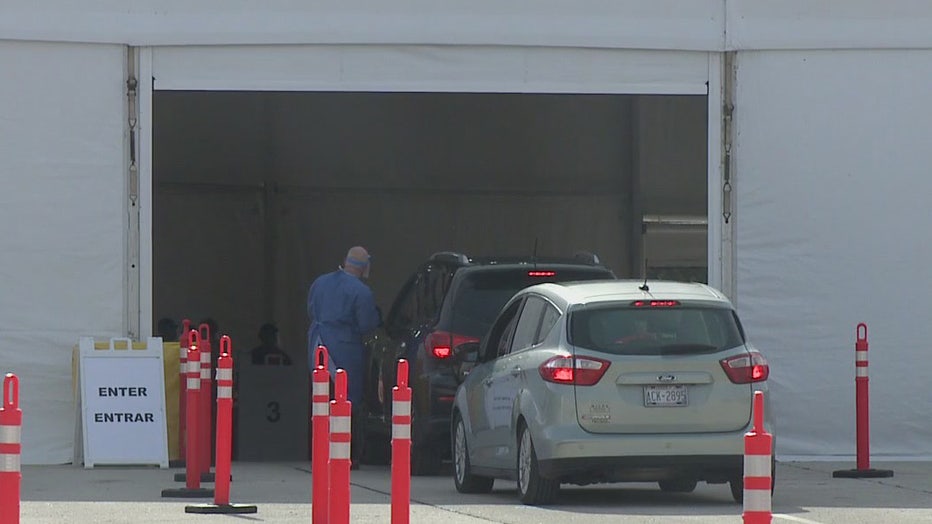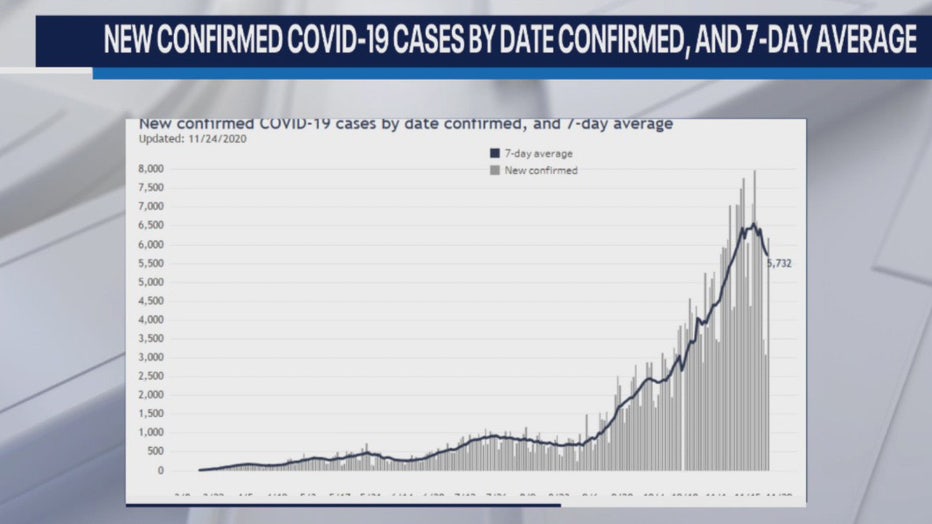Wisconsin sees both troubling, encouraging COVID-19 trends

Wisconsin sees both troubling, encouraging COVID-19 trends
The governor is also cautiously optimistic that his meeting last week with Republican leaders will lead to a bipartisan plan to fight the virus.
MILWAUKEE - In a year full of new normals, Gov. Tony Evers said Thanksgiving shouldn't be any different -- urging families to avoid gatherings this holiday, large or small.
The governor's warning comes as data show both troubling and encouraging trends related to the COVID-19 pandemic.
The Wisconsin Department of Health Services (DHS) on Tuesday reported a record high in deaths related to COVID-19 for a single day.
"If you’re not following that advice and those recommendations, you’re helping people to die," said Gov. Evers.

Gov. Evers, Wisconsin DHS offer COVID-19 pandemic update (11-24-20)
Gov. Evers, Wisconsin DHS offer COVID-19 pandemic update (11-24-20)
Also of concern for health officials is the night before Thanksgiving -- one of the biggest drinking days of the year. The governor's order limiting capacity at public spaces, like bars, is currently blocked by the courts.
"You can count on that being a possible spreader of the disease," Gov. Evers said.

Andrea Palm, DHS secretary-designee, said even negative coronavirus test results are not a free pass to socialize in person.
"It means the test did not detect COVID-19 when it was administered," said Palm.

Wisconsin COVID-19 seven-day case average. (Nov. 24, 2020)
There is some encouraging news heading into the holiday, though; the state's seven-day average of daily COVID-19 cases is showing a steady decline.
"I think we should feel good that it isn’t climbing," said Dr. Ryan Westergaard, chief medical officer with the DHS Bureau of Communicable Diseases. "That being said, the level of transmission and the number of cases is very high. So are we flattening the curve? No."
The governor is also cautiously optimistic that his meeting last week with Republican leaders will lead to a bipartisan plan to fight the virus. His staff met with theirs on Tuesday to continue the discussion.
FREE DOWNLOAD: Get breaking news alerts in the FOX6 News app for iOS or Android.
"Hopefully things went well and we can work together to get something for the people of Wisconsin," said Gov. Evers.
Health officials are also reminding people to check in with loved ones in nursing homes or who live alone -- and to catch up with them virtually instead.
Featured
Hours change during holiday for COVID-19 testing sites
The COVID-19 testing sites staffed by the Milwaukee Health Department will operate with modified hours during Thanksgiving week.



